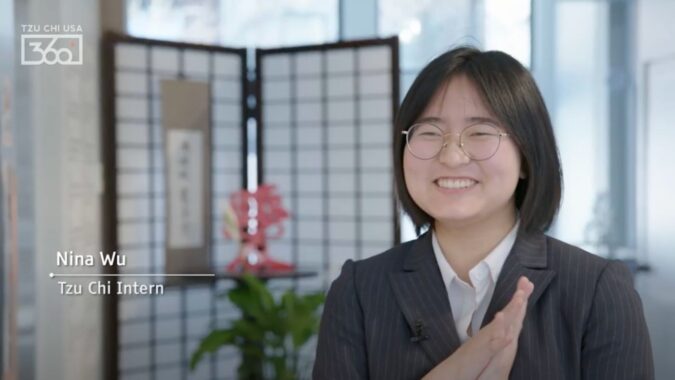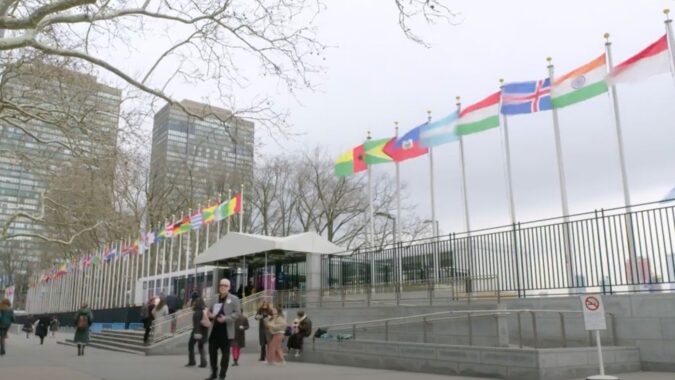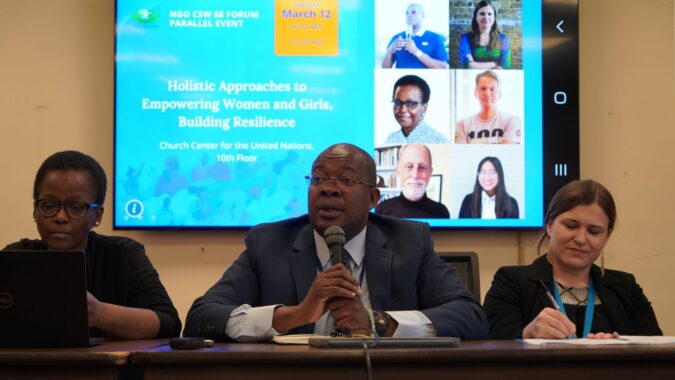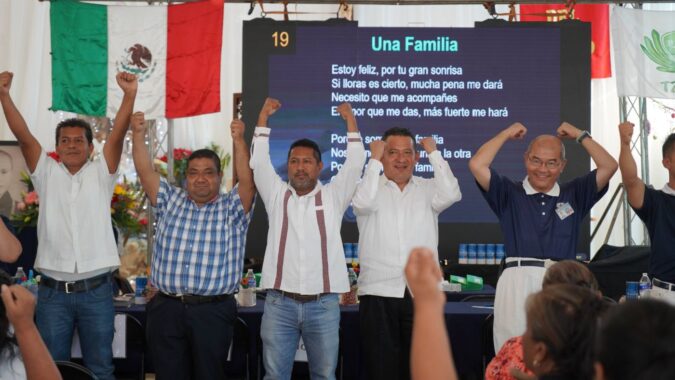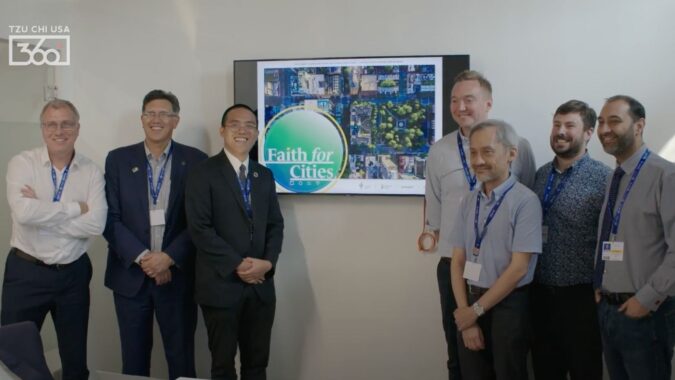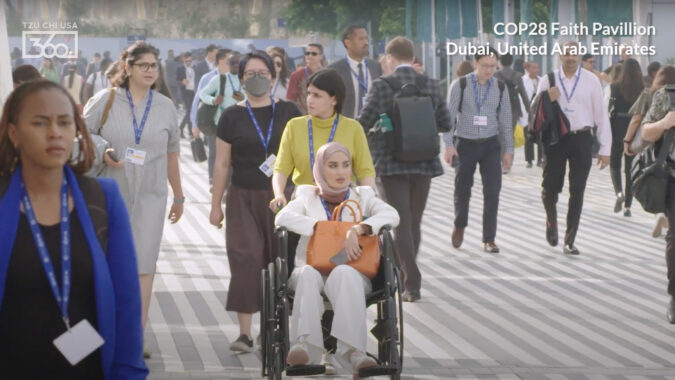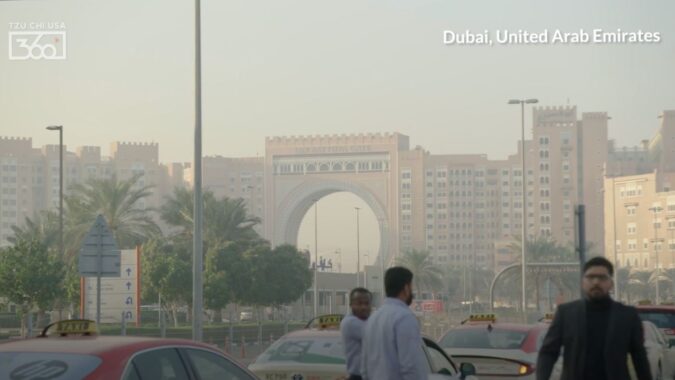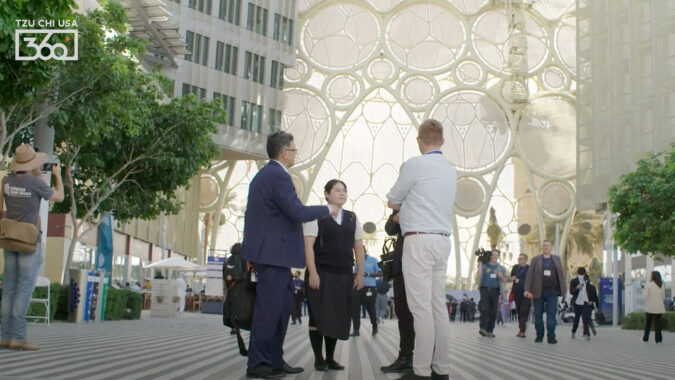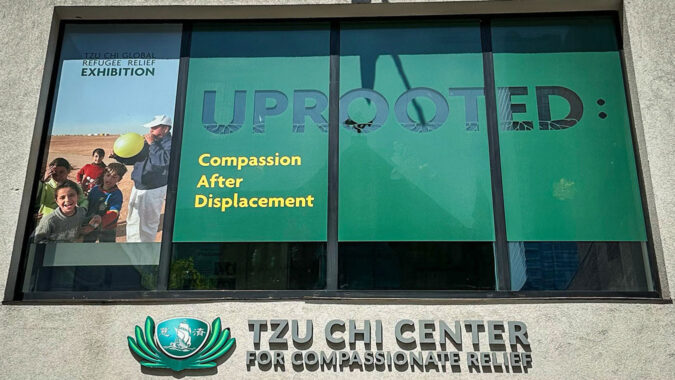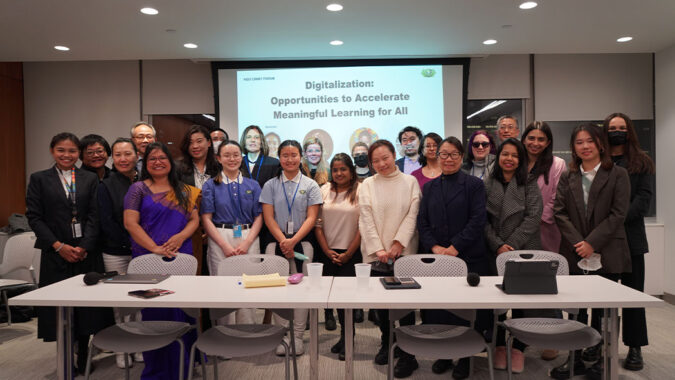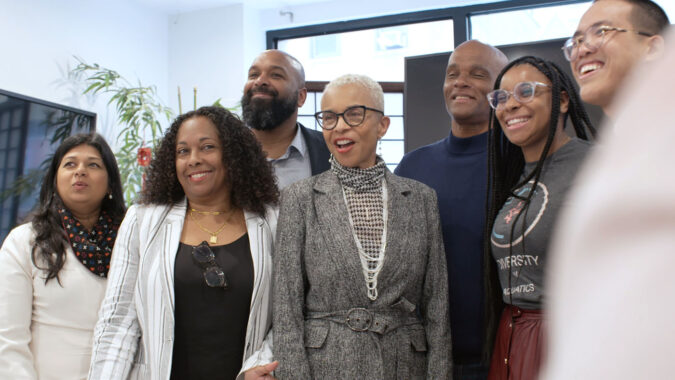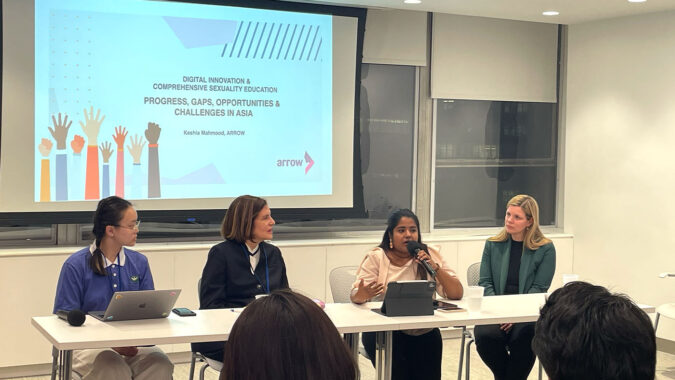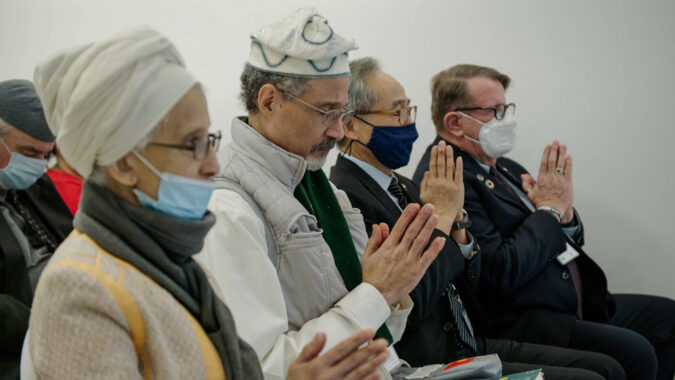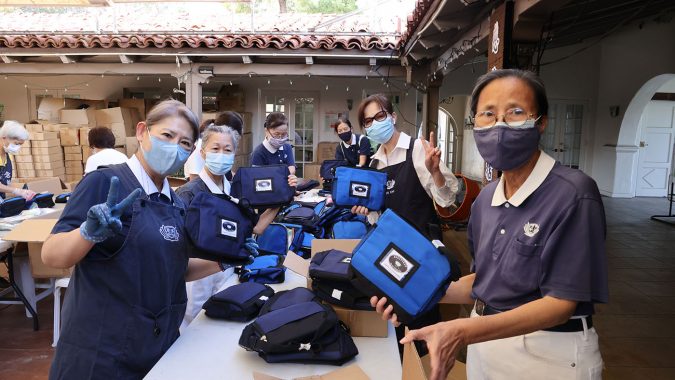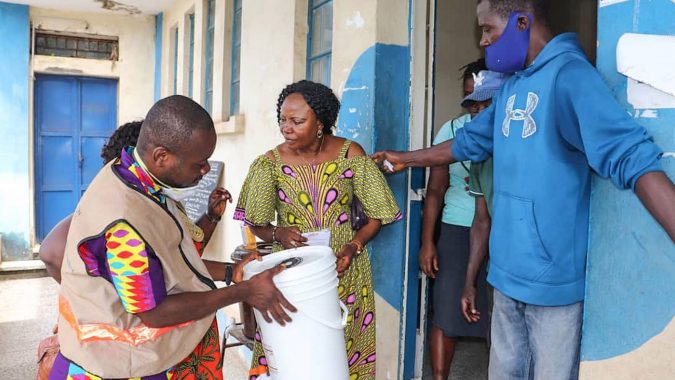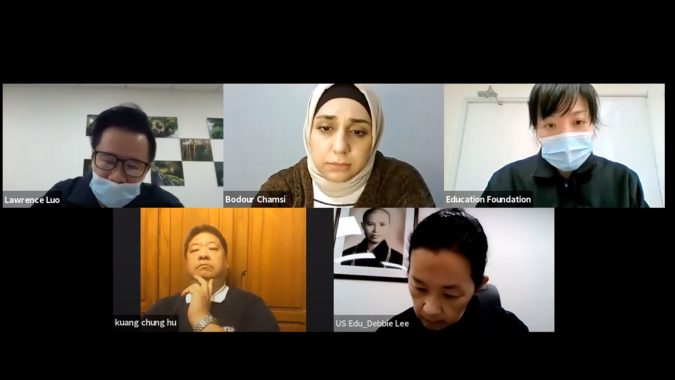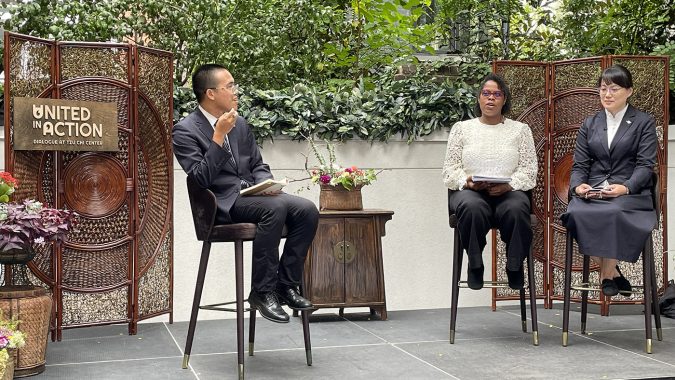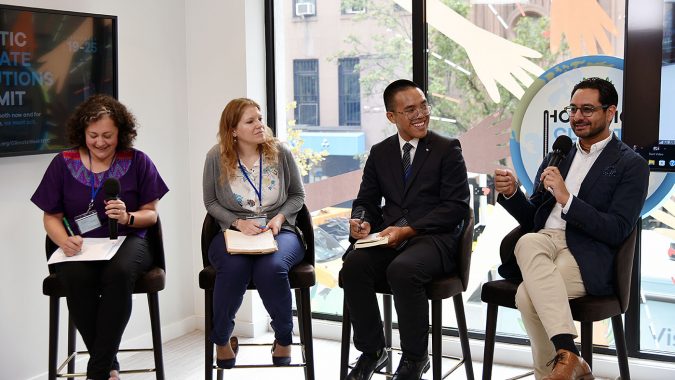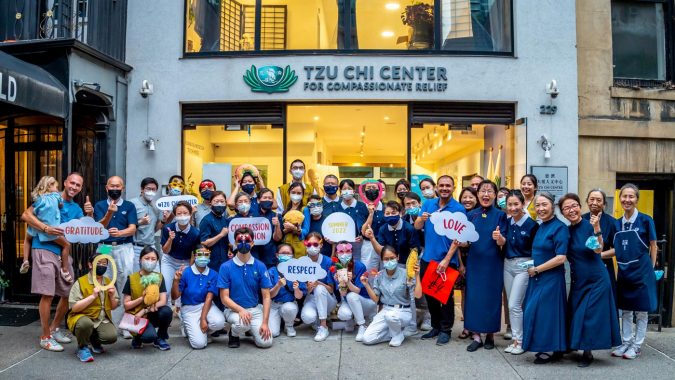WRITTEN BY: Anna Sipek
On the fourth day of COP28 in Dubai, Tzu Chi made waves, dedicating their energies to transforming food and educational systems for a greener future. While changemakers have been pushing the world to focus on these proactive solutions to the climate crisis, they’ve often been overlooked in favor of technological solutions.
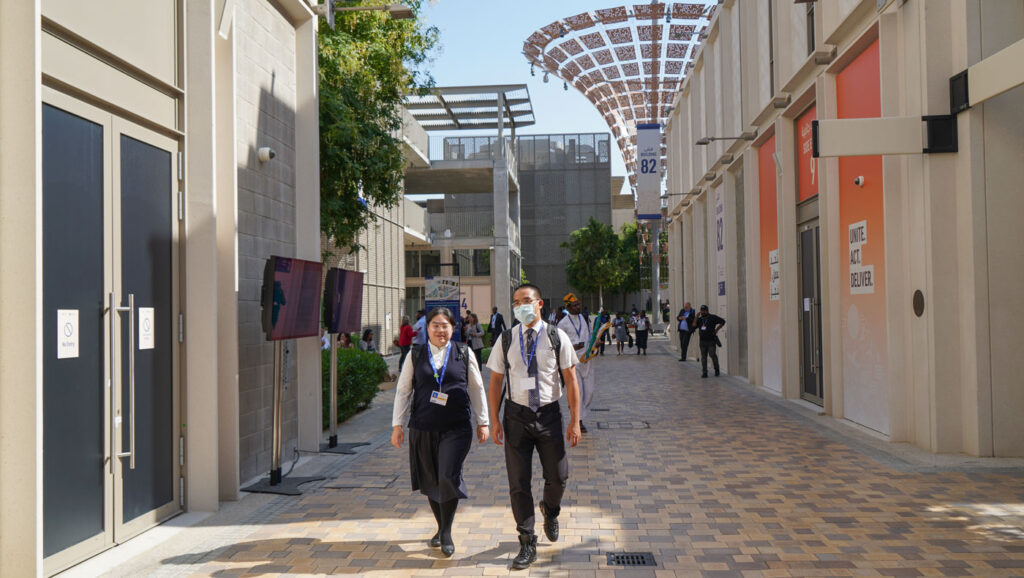
“Today is the first COP28 that we’re seeing a whole health day that they’re discussing matters of climate change and health,” said Dr. David Ojijo, Founder and CEO of Green Health Focus. This could potentially mark a shift in the culture of COP as a whole, as we find more and more activists feeling the pressure of the climate crisis from within their homes, there are likely to be more and more pushes to shift what our daily lives look like.
Transforming Food Systems
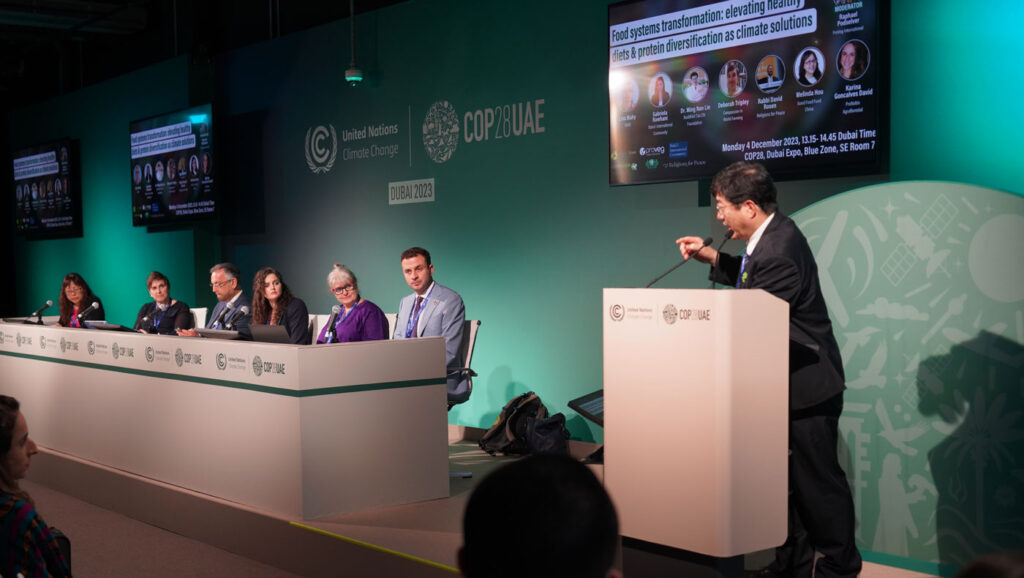
Tzu Chi hosted their first event of the day, “Food systems transformation: elevating healthy diets & protein diversification as climate solutions,” in collaboration with ProVeg International and Compassion in World Farming.
If we as a global community are interested in achieving the Paris Agreement, keeping the global rise in temperature under 1.5 degrees Celsius, we need to address the role food systems play in our environmental degradation. One third of our total emissions come from food production; half of those emissions can be attributed to animal-based products.
Beyond driving high emissions, animal agriculture also contributes highly to deforestation, pollution, and biodiversity loss.
“The dependence upon animal products is an enormous damage to the environment, damage to human health, and threatens the well-being of our planet,” said Rabbi David Rosen, International President of Religions for Peace.
“The livestock industry is a greater source of destruction. In order to be able to provide for the developed world’s greed for animal flesh and products, enormous wastage of water of land resources and then to deal with this congestion of animals for production. All these factors lead both to disease and to environmental pollution/destruction of our natural ecosystem.”
Luckily, there are solutions.
“If we want to have a better environment we need to transform the food system, diversify the protein source,” pushed Dr. Ming Nan Lin.
Investing in plant-based diets has the potential to significantly reduce global emissions, free up much needed land, and cut food prices around the world. This means that not only does a plant-based diet nourish us and our planet, but promotes food security for our ever-growing population.
Exploring the Possibility of Green Education
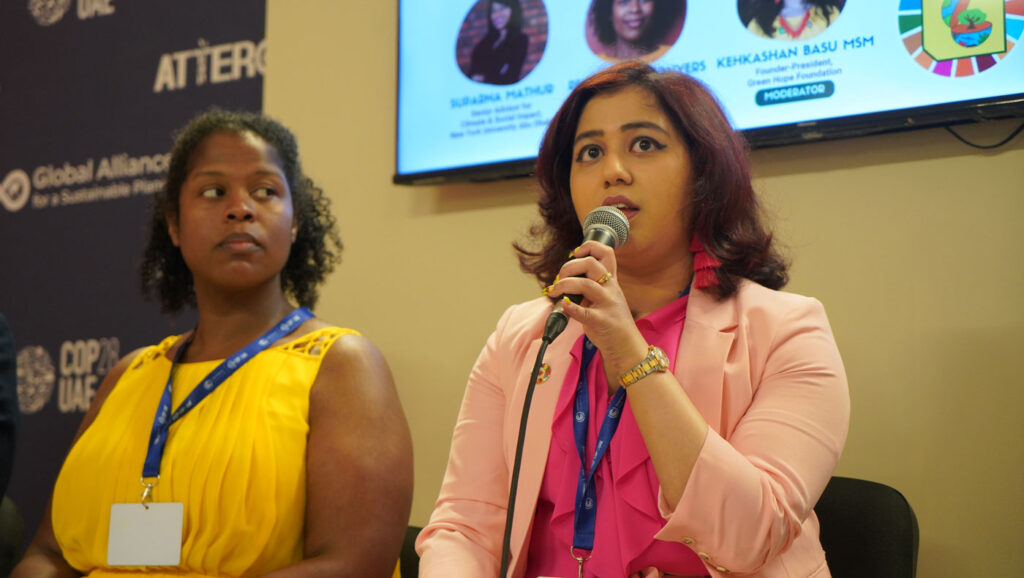
Later in the day Tzu Chi hosted “Greening Education through Clean Energy Innovation to Implement Climate Justice” with the Green Hope Foundation at the Global Alliance for a Sustainable Planet Pavilion.
The climate crisis continues to contribute to social injustices in the hardest hit communities around the world, ultimately impacting access to education. This event was dedicated to exploring the role clean energy technology might play in uplifting climate vulnerable communities and mitigating social injustices.
After sharing multiple case studies from underserved communities implementing clean energy innovations and greening their own education, panelists and participants alike came together to reflect.
“We need our healthcare sector professionals even including the students to know more about how to reduce the climate impact,” urged Dr. Ming Nan Lin, Vice Superintendent of Dalin Tzu Chi Hospital.





